Online training for Caribbean NPPOs
- 18/01/2021
- Posted by: Gaetan Dermien
- Category: Caribbean, News
No Comments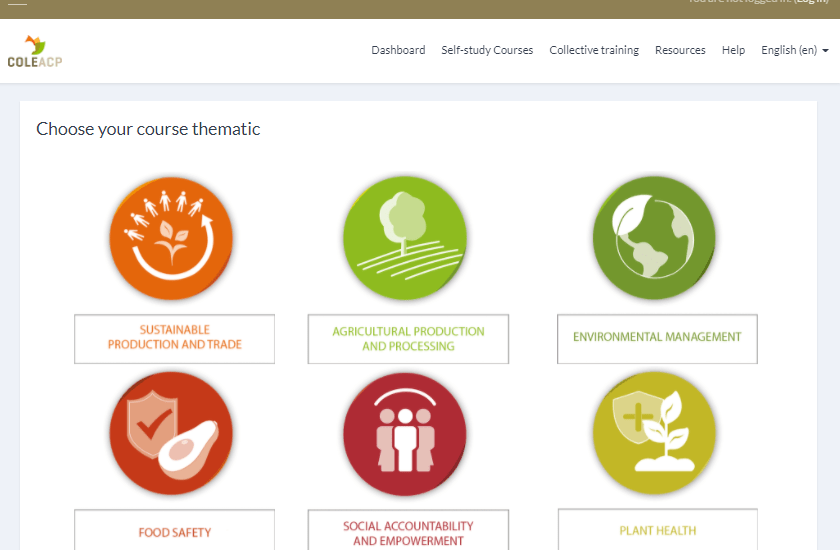 COLEACP is providing training in the Caribbean on Implementation of official controls for inspectors, controllers and technical staff involved in phytosanitary control, inspection and certification activities. This online training for NPPOs will be provided between 25 January and 19 February. Spread over 4 weeks, it requires a daily time commitment of 3–4 hours. It is provided via COLEACP’s online training platform, and will be delivered through web conferencing, quizzes, educational videos and other digital tools. COLEACP’s expert trainers are always… +
COLEACP is providing training in the Caribbean on Implementation of official controls for inspectors, controllers and technical staff involved in phytosanitary control, inspection and certification activities. This online training for NPPOs will be provided between 25 January and 19 February. Spread over 4 weeks, it requires a daily time commitment of 3–4 hours. It is provided via COLEACP’s online training platform, and will be delivered through web conferencing, quizzes, educational videos and other digital tools. COLEACP’s expert trainers are always… +News digest: policy
- 18/01/2021
- Posted by: Gaetan Dermien
- Category: Africa, Caribbean, News, Pacific
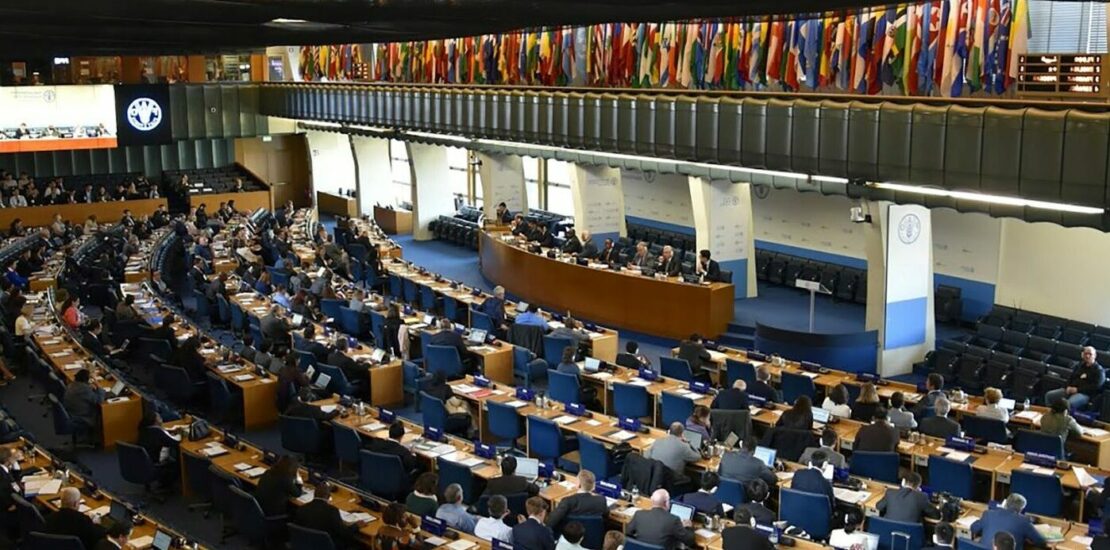 GLOBAL Global Forum for Food and Agriculture goes digital The 13th Global Forum for Food and Agriculture will be the first to be totally digital. The GFFA, 18–22 January, has the theme “How to feed the world in times of pandemics and climate change?”. The annual Berlin-based meeting, hosted by the German Federal Ministry of Food and Agriculture (BMEL), is held under the umbrella of International Green Week. Around 2,000 international participants from politics, industry, science and civil society will… +
GLOBAL Global Forum for Food and Agriculture goes digital The 13th Global Forum for Food and Agriculture will be the first to be totally digital. The GFFA, 18–22 January, has the theme “How to feed the world in times of pandemics and climate change?”. The annual Berlin-based meeting, hosted by the German Federal Ministry of Food and Agriculture (BMEL), is held under the umbrella of International Green Week. Around 2,000 international participants from politics, industry, science and civil society will… +News digest: Agri-food markets & production
- 18/01/2021
- Posted by: Gaetan Dermien
- Category: Africa, Caribbean, News, Pacific
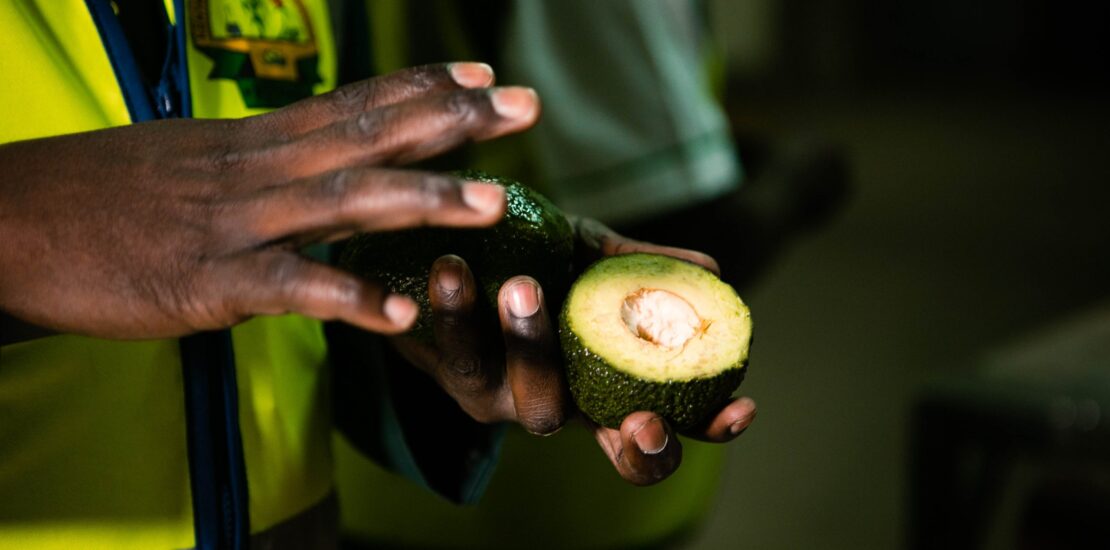 MARKETS: GLOBAL Overview: Global avocado market The price for avocados on the global market has been rising in recent weeks due to a smaller supply and a shortage of large sizes (Fresh Plaza, 8 January). At the moment, Mexico and Chile dominate the market, but their volumes are declining. In the Netherlands, avocado sales were good during the holidays with stable, high prices. In Germany, due to the pandemic, the volume purchased in the wholesale trade has been reduced, and… +
MARKETS: GLOBAL Overview: Global avocado market The price for avocados on the global market has been rising in recent weeks due to a smaller supply and a shortage of large sizes (Fresh Plaza, 8 January). At the moment, Mexico and Chile dominate the market, but their volumes are declining. In the Netherlands, avocado sales were good during the holidays with stable, high prices. In Germany, due to the pandemic, the volume purchased in the wholesale trade has been reduced, and… +Use of TRACES NT in ACP countries
- 18/01/2021
- Posted by: Gaetan Dermien
- Category: Africa, Caribbean, News, Pacific
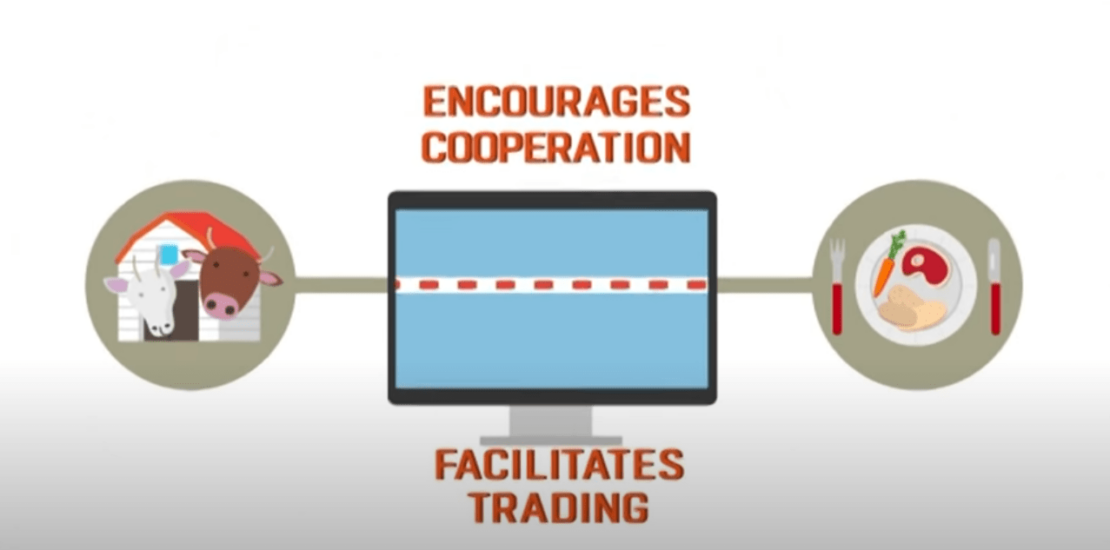 (Source of the illustration) TRACES allows the centralisation in a database of administrative documents related to the import of goods. It also enables EU Member States to track goods, facilitate control, combat fraud, and protect public, animal and plant health. The new version of the tool – TRACES NT – also allows the centralisation of inspection certificates for organic products, phytosanitary certificates and Common Health Entry Documents for Plants and Plant Products (CHED-PP). COLEACP supports NPPOs to strengthen their sanitary… +
(Source of the illustration) TRACES allows the centralisation in a database of administrative documents related to the import of goods. It also enables EU Member States to track goods, facilitate control, combat fraud, and protect public, animal and plant health. The new version of the tool – TRACES NT – also allows the centralisation of inspection certificates for organic products, phytosanitary certificates and Common Health Entry Documents for Plants and Plant Products (CHED-PP). COLEACP supports NPPOs to strengthen their sanitary… +IYFV 2021 – Fruits and vegetables, your dietary essentials
- 18/01/2021
- Posted by: Gaetan Dermien
- Category: Africa, Caribbean, News, Pacific
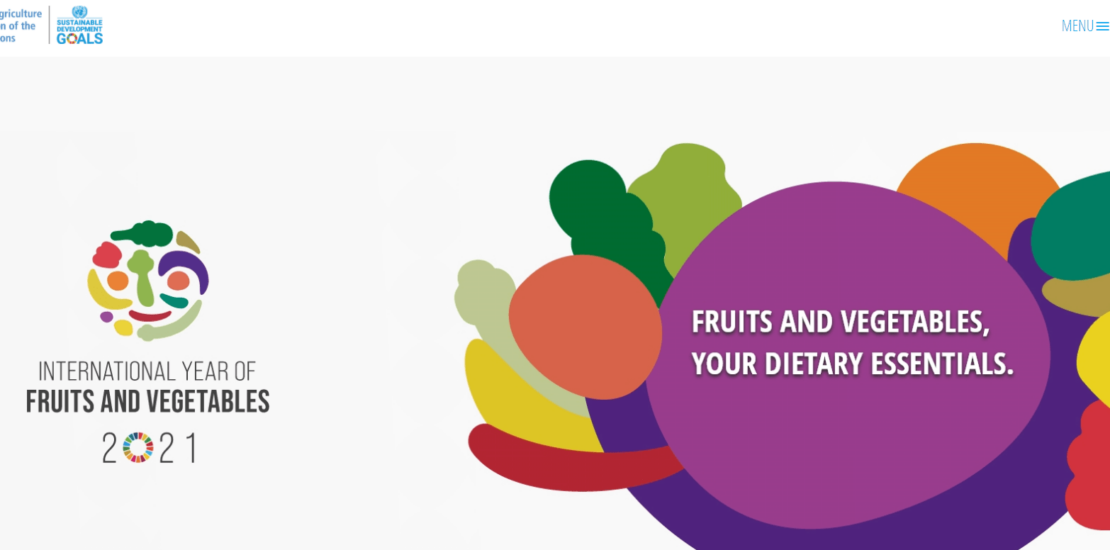 At its 74th session, the United Nations General Assembly proclaimed 2021 the International Year of Fruits and Vegetables (IYFV). The IYFV is a unique opportunity to raise awareness on the important role of fruit and vegetables in human nutrition, food security and health, and in achieving the United Nations Sustainable Development Goals. At the (virtual) Official Launch Event of IYFV 2021 on 15 December 2020, the Director-General of the Food and Agriculture Organization (FAO), QU Dongyu, made an appeal to… +
At its 74th session, the United Nations General Assembly proclaimed 2021 the International Year of Fruits and Vegetables (IYFV). The IYFV is a unique opportunity to raise awareness on the important role of fruit and vegetables in human nutrition, food security and health, and in achieving the United Nations Sustainable Development Goals. At the (virtual) Official Launch Event of IYFV 2021 on 15 December 2020, the Director-General of the Food and Agriculture Organization (FAO), QU Dongyu, made an appeal to… +Innovation series – Session N°2 – Grow local: Conquering local markets
- 14/01/2021
- Posted by: Gaetan Dermien
- Category: Africa, Caribbean, News, Pacific
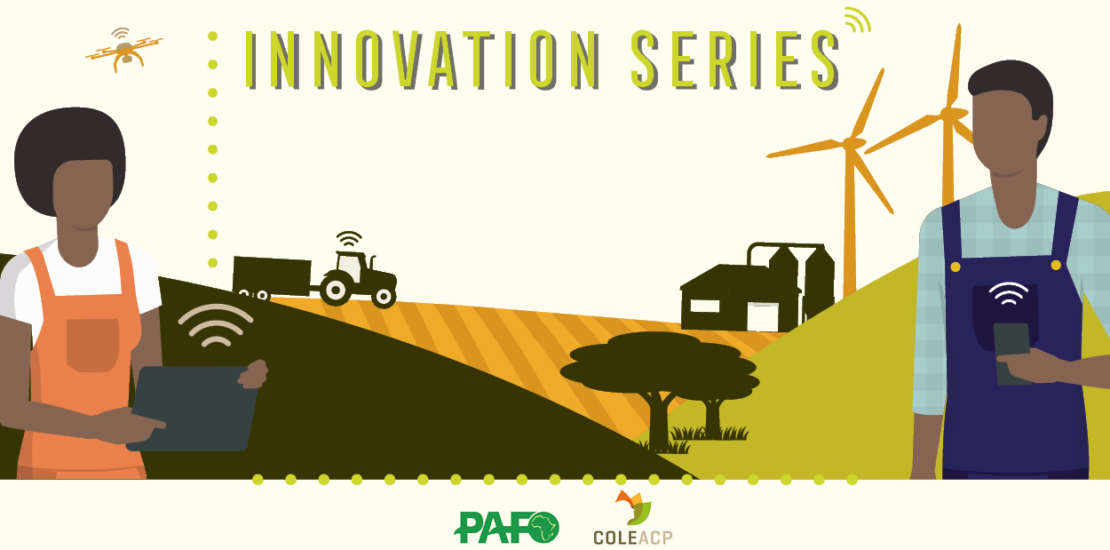 Session N°2 Grow local: Conquering local markets 21 January 2021, 12h00–14h00 (GMT) English–French interpretation available The second session of the Pan African Farmers Organization (PAFO)-COLEACP Innovation Series will focus on ‘Grow local: Conquering local markets’. Key points for discussion: In serving local markets in value-added products, what are the main challenges encountered by business and SMEs and how can innovation help them to grow? Are we seeing changes by consumers towards buying local products? What should public and private sector… +
Session N°2 Grow local: Conquering local markets 21 January 2021, 12h00–14h00 (GMT) English–French interpretation available The second session of the Pan African Farmers Organization (PAFO)-COLEACP Innovation Series will focus on ‘Grow local: Conquering local markets’. Key points for discussion: In serving local markets in value-added products, what are the main challenges encountered by business and SMEs and how can innovation help them to grow? Are we seeing changes by consumers towards buying local products? What should public and private sector… +News digest: policy
- 17/12/2020
- Posted by: Gaetan Dermien
- Category: Africa, Caribbean, News, Pacific
 Global Financing the Sustainable Development Goals The European Investment Bank (10 December)has joined a group of 11 multilateral development banks (MDBs) and the International Monetary Fund to launch the first-ever joint report on Financing the Sustainable Development Goals. The report is released at the end of a critical year, in which the Covid-19 pandemic threatens to reverse progress on the SDGs. In response, the MDBs have collectively mobilised a global response package of US$230 billion between 2020 and 2021 to… +
Global Financing the Sustainable Development Goals The European Investment Bank (10 December)has joined a group of 11 multilateral development banks (MDBs) and the International Monetary Fund to launch the first-ever joint report on Financing the Sustainable Development Goals. The report is released at the end of a critical year, in which the Covid-19 pandemic threatens to reverse progress on the SDGs. In response, the MDBs have collectively mobilised a global response package of US$230 billion between 2020 and 2021 to… +News digest: Agri-food markets & production
- 16/12/2020
- Posted by: Gaetan Dermien
- Category: Africa, Caribbean, News, Pacific
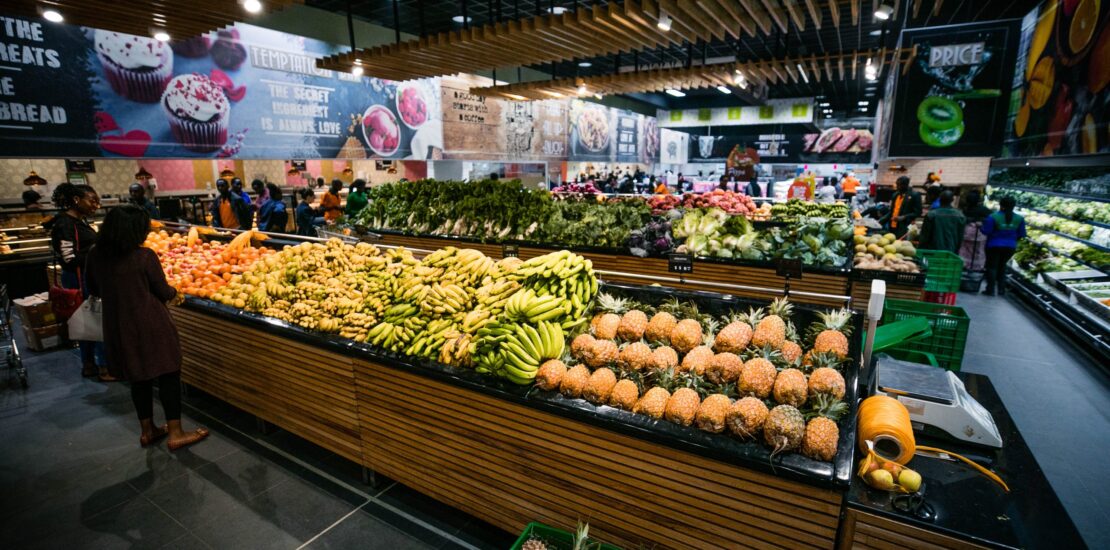 MARKETS: AFRICA Kenya and UK sign trade deal Kenya and the United Kingdom have formally signed a trade agreement ending an era of doing business through protocols of the European Union, from which London will exit at the end of December (FPC Fresh Talk Daily, 9 December). The agreement provides for Kenya’s duty-free, quota-free access to the UK market on specified products, which currently include coffee, tea, fresh vegetables and cut flowers. The deal has also simplified the Rules of… +
MARKETS: AFRICA Kenya and UK sign trade deal Kenya and the United Kingdom have formally signed a trade agreement ending an era of doing business through protocols of the European Union, from which London will exit at the end of December (FPC Fresh Talk Daily, 9 December). The agreement provides for Kenya’s duty-free, quota-free access to the UK market on specified products, which currently include coffee, tea, fresh vegetables and cut flowers. The deal has also simplified the Rules of… +EU approval will not be renewed for six key PPPs
- 30/11/2020
- Posted by: Gaetan Dermien
- Category: Africa, Benin, Botswana, Burkina Faso, Burundi, Cameroon, Caribbean, Côte d'Ivoire, Democratic Republic Of The Congo, Dominican Republic, Ethiopia, Gambia, Ghana, Guinea, Kenya, Mali, Mauritius, Namibia, Nigeria, Pacific, Rwanda, Senegal, Sierra Leone, Suriname, Tanzania, Togo, Uganda, Zambia, Zimbabwe
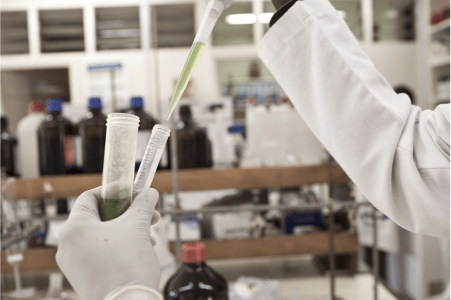 Key points EU approval will not be renewed for six PPPs that are important to ACP horticulture : – thiophanate methyl – mancozeb – imidacloprid – zeta-cypermethrin – haloxyfop-p – pencycuron How will ACP producers/exporters be affected? Non-renewal means that these PPPs can no longer be legally used within EU countries. But it also has an impact on ACP growers – the EU maximum residue levels (MRLs) will be reduced to the limit of determination (LoD), which in most cases means… +
Key points EU approval will not be renewed for six PPPs that are important to ACP horticulture : – thiophanate methyl – mancozeb – imidacloprid – zeta-cypermethrin – haloxyfop-p – pencycuron How will ACP producers/exporters be affected? Non-renewal means that these PPPs can no longer be legally used within EU countries. But it also has an impact on ACP growers – the EU maximum residue levels (MRLs) will be reduced to the limit of determination (LoD), which in most cases means… +EU MRL changes
- 13/11/2020
- Posted by: Gaetan Dermien
- Category: Africa, Angola, Benin, Botswana, Burkina Faso, Burundi, Cameroon, Cape Verde, Caribbean, Central African Republic, Chad, Côte d'Ivoire, Democratic Republic Of The Congo, Djibouti, Dominica, Dominican Republic, Equatorial Guinea, Eritrea, Eswatini, Ethiopia, Federated States of Micronesia, Fiji, Gabon, Gambia, Ghana, Grenada, Guinea, Guinea-Bissau, Guyana, Haiti, Jamaica, Kenya, Lesotho, Liberia, Madagascar, Malawi, Mali, Mauritania, Mauritius, Mozambique, Namibia, Niger, Nigeria, Pacific, Papua New Guinea, Republic of the Congo, Rwanda, Saint Kitts and Nevis, Saint Lucia, Saint Vincent and the Grenadines, Samoa, Sao Tome and Principe, Senegal, Seychelles, Sierra Leone, Somalia, Sudan, Suriname, Tanzania, Timor-Leste, Togo, Tonga, Trinidad and Tobago, Tuvalu, Uganda, Vanuatu, Zambia, Zimbabwe
 This news provides updates on recent changes to EU maximum residue limits (MRLs) for plant protection products (PPPs). Where an MRL has been lowered, it is important for growers using the PPP to make any necessary adjustments in good time to ensure continued compliance with EU regulations. This may mean adapting production practices (good agricultural practices, GAP) or using alternative control methods. This news also includes a complete list of the MRL changes introduced so far in 2020. If you… +
This news provides updates on recent changes to EU maximum residue limits (MRLs) for plant protection products (PPPs). Where an MRL has been lowered, it is important for growers using the PPP to make any necessary adjustments in good time to ensure continued compliance with EU regulations. This may mean adapting production practices (good agricultural practices, GAP) or using alternative control methods. This news also includes a complete list of the MRL changes introduced so far in 2020. If you… +
